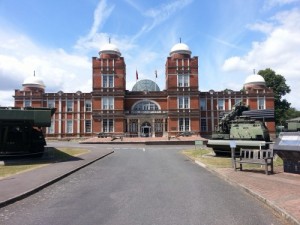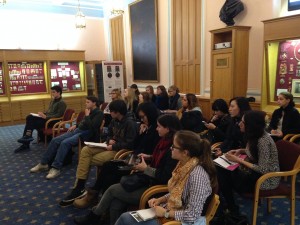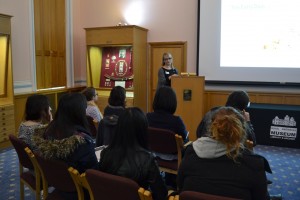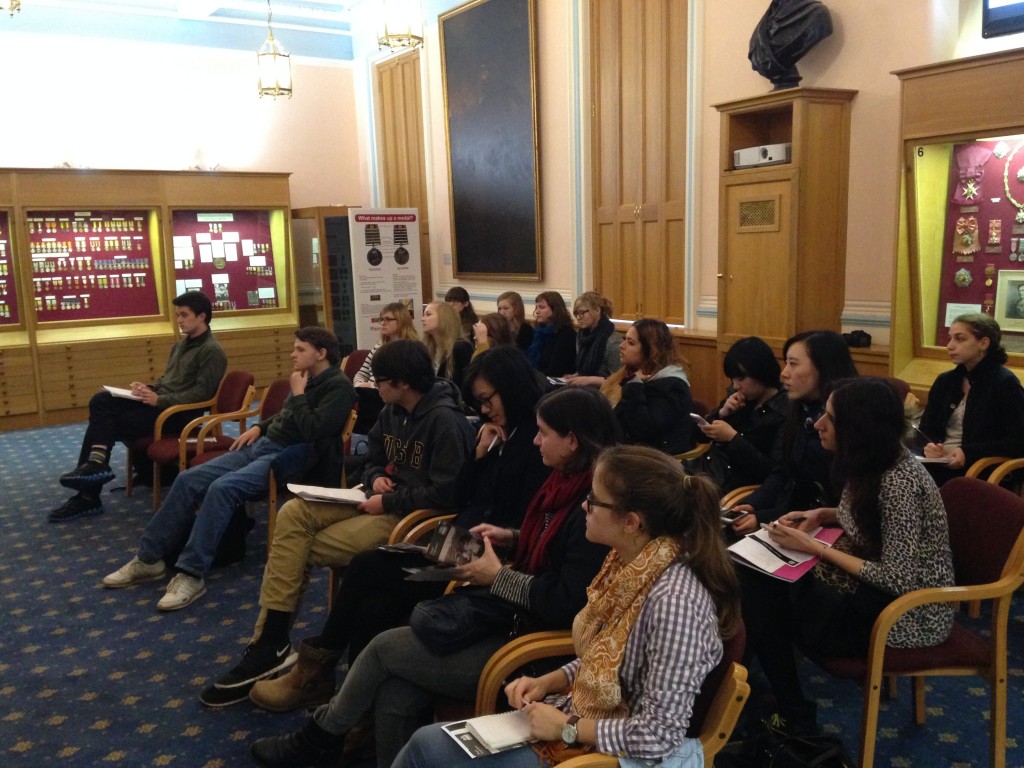The School of History has a number of partnerships with local and national organisations, with whom we often work to arrange events and opportunities that will benefit our students. A key partner for the School is the Royal Engineers Museum, Library and Archive, based in Chatham, and as part of the University’s Employability Week, the School arranged for a group of students to visit the Museum for a Careers Day on Wednesday 5 November.

The museums and heritage sector is a competitive and challenging industry to enter, but one that many students consider as a future career. The Careers Day was held to highlight all of the various jobs and roles that needed to operate a thriving museum. In addition to the central task of curation and collections management element of the Museum, staff are also employed in areas such as:
- Marketing and Commercial Services
- Fundraising
- Conservation Management
- Education and Events
- Community Engagement
- Exhibitions and Galleries Presentation

The staff’s commitment to their work was obvious throughout the talks, with everything returning to the primacy of the Museum’s collection and the importance of both properly maintaining it, and making it accessible to the public.What was also clear was the commitment any hopeful applicant must show in order to be considered for a position with a museum. As Rebecca Nash, the head curator for the Museum, said, although there are over 2,500 museums in the United Kingdom, for each vacancy advertised by the Royal Engineers Museum they expect to receive 40 applications. For a larger institution, such as the National Army Museum, it is closer to 200 applications per vacancy.In order to just be considered, then, applicants must stand out as well as have experience, usually gained through volunteering. It was revealing to hear that every speaker had undertaken at least a year’s worth of voluntary work with various museums in advance of their application for a paid position, with many having done considerably more. The importance, also, of obtaining professional qualifications in the heritage sector is also clear: most speakers hold an MA in Museum Studies or Heritage Studies. Those interested in a career in museum work might like to consider the University’s MA in Curating.
Jon Beer
Student Office Manager
School of History


